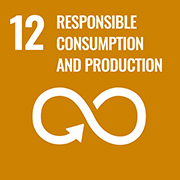
HEALTHCARE EQUITY FOR ALL
Introduction
Surgery is a consistently evolving field of medicine. As such, medical professionals are constantly having to adapt to new, minimally invasive technologies such as robotic surgery or endoscopic surgery.
With our surgical training kits and our high-fidelity synthetic tissue, KOTOBUKI Medical meets the needs of healthcare professionals who wish to improve their skills outside of the operating room. By supporting this vital part of the healthcare infrastructure, we aim to kickstart innovation in medical technology and help those in the industry give their patients the best quality of care.
Creating a Sustainable Future for Society, the Environment, and the Economy
We believe that to realize the society we are aiming for; it is essential to promote business activities and product development that consider not only economic aspects but also social and environmental aspects.
Society
KOTOBUKI Medical seeks to break down barriers to equipment installation and accessible training. By giving medical professionals a cost-effective, low-waste option for hands-on practice, we hope to relieve the ethical and economic burdens that can be created by surgical training methods.
Environment
Our VTT products are made of accessible plant-based ingredients that deliver less environmental impact than other plastic or silicon synthetic organs. This holds true for every step of the manufacturing process, from transportation and production to use and disposal.
Economy
Most high-fidelity human simulations cost thousands of dollars. Our models are a fraction of that price. We provide realistic training tools at a cost that is accessible to students and professionals alike.



★Sustainable Development Goals
By contributing to the improvement of technology for medical professionals through our products, we aim to help achieve "Goal 3: Good health and well-being" of the SDGs. The environmental and ethical impact of using VTT versus porcine or plastic prototypes can also contribute towards the achievment of "Goal 12: Responsible consumption and production."